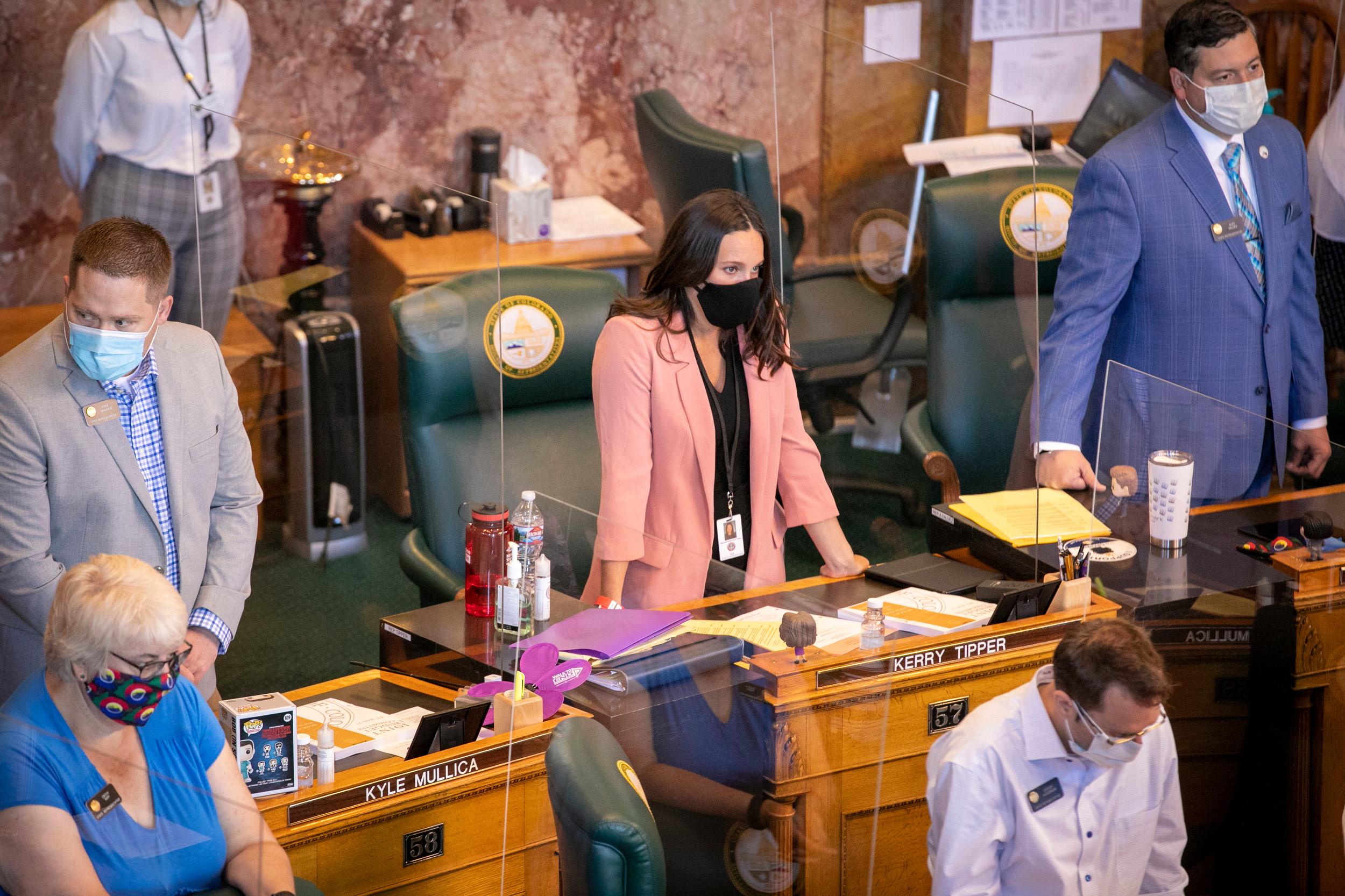
Colorado lawmakers met on Tuesday as they never have before.
Health workers armed with thermometers waited at every Capitol entrance. On the House floor, transparent barriers separated lawmakers’ desks. In the Senate, some desks were simply marked with laminated signs: “PLEASE LEAVE VACANT,” their usual occupants relocated to benches along the sides of the chamber to allow for social distancing.
Around the building, most people wore masks, though a good number of Republican lawmakers in the House did not.
Six Democratic lawmakers chose not to return in person to the state capitol Tuesday, three from each chamber. Both bodies are expected to discuss rule changes later this week to allow lawmakers with safety concerns to participate remotely. Republicans object though that such a change would violate the Colorado constitution.
“Our caucus is adamantly opposed to remote participation,” Senate Assistant Minority Leader John Cooke said.
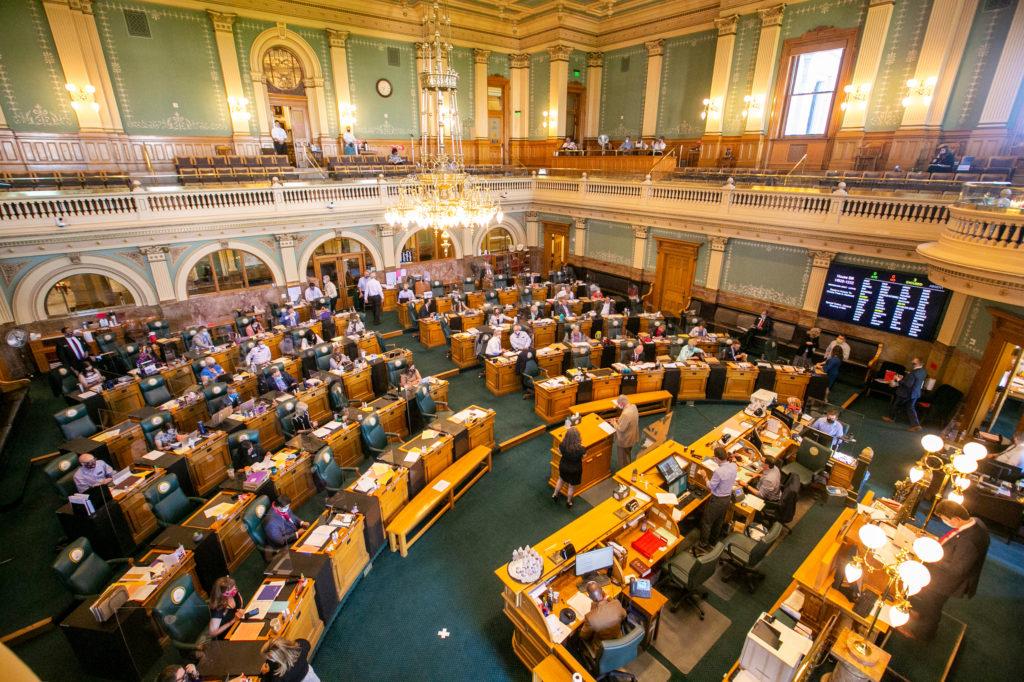
Plenty waiting to be done
The state legislature went into recess on March 14 to curb the spread of the novel coronavirus. They resumed work on Tuesday to address a long list of pressing business. Chief on the list: Slashing the state budget to balance Colorado’s finances before the state’s next fiscal year begins on July 1.
Democrats, who hold the majority in both chambers, say they also are working on new bills aimed at protecting workers in the age of COVID-19, getting the state back to work safely and changing procedures for how government functions.
“I hope the next few weeks really are productive — and show how Colorado, and Coloradans, and this legislature is really going to rise above, and really focus on how we can do the best we can, for the most people,” House Speaker KC Becker said.
She highlighted a measure that Democrats will introduce to give Colorado more authority to investigate and prosecute businesses that engage in price gouging during a state of emergency.
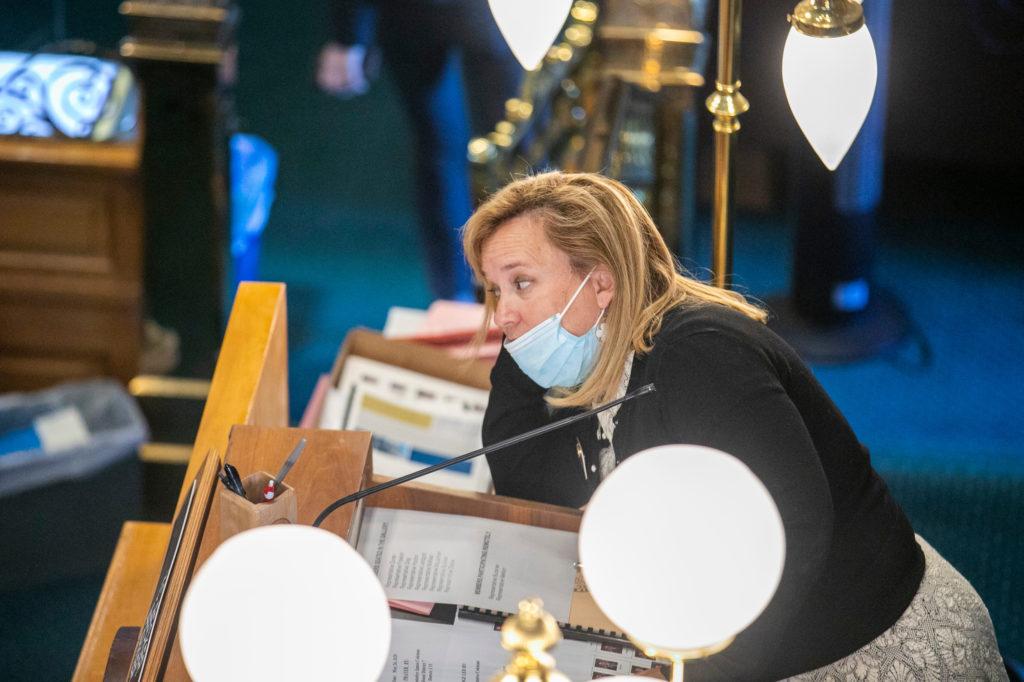
While lawmakers have abandoned efforts to pass a sweeping, statewide paid family leave bill this session, Democrats say they will work on a much more limited proposal along those lines: a bill that would require businesses to allow employees to accrue a minimum of 48 hours of paid sick leave. The measure would go into effect in 2021 and supporters say the goal is to try to change the “work while sick” culture prevalent in many businesses.
“It’s meant to be a very basic safety net for all workers in Colorado," said Senate Majority Leader Steve Fenberg, a main sponsor. Some of the state’s largest business groups say they still have a lot of questions about the proposal.
Democrats would like to beef up unemployment insurance benefits, by increasing the dollar amount some people receive and expanding who qualifies. Another proposal would provide whistleblower protections to employees who complain about unsafe working conditions.
Republicans have their own ideas to protect businesses and try to get the economy back on track. But this late in the session legislative leaders must approve new bills, and it’s unlikely that Democrats will give the green light to any GOP proposals that don’t have wide bipartisan support.
A lot of the new legislation will begin this week in the Senate, while the House debates and passes the budget.
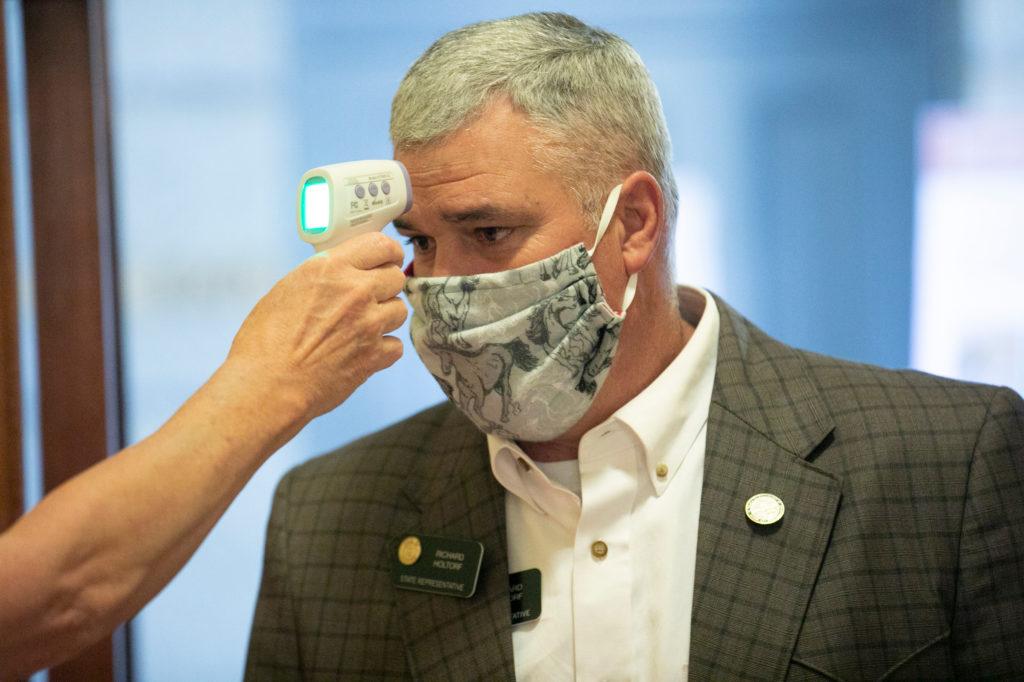
Back to work in a changed world
Thanks to a State Supreme Court ruling, lawmakers can stay in session for almost two months, although both parties have expressed a strong desire to get their work done as quickly as possible to reduce their time inside the state Capitol building.
The situation means big changes in how the public participates in lawmaking. Seating in committee rooms has been restricted to allow for social distancing. And for the first time, the legislature is requiring people who want to testify for or against bills to sign up in advance. In normal times, the legislature allows people to phone in remote testimony from nearly a dozen sites around the state, but those facilities are not currently available.
“We just cannot have large gatherings without serious risks of becoming a center of infection and reversing the trend. As a result, many good bills can not go forward this year,” said state Sen. Pete Lee, a Democrat from Colorado Springs and Chair of the Senate Judiciary Committee.
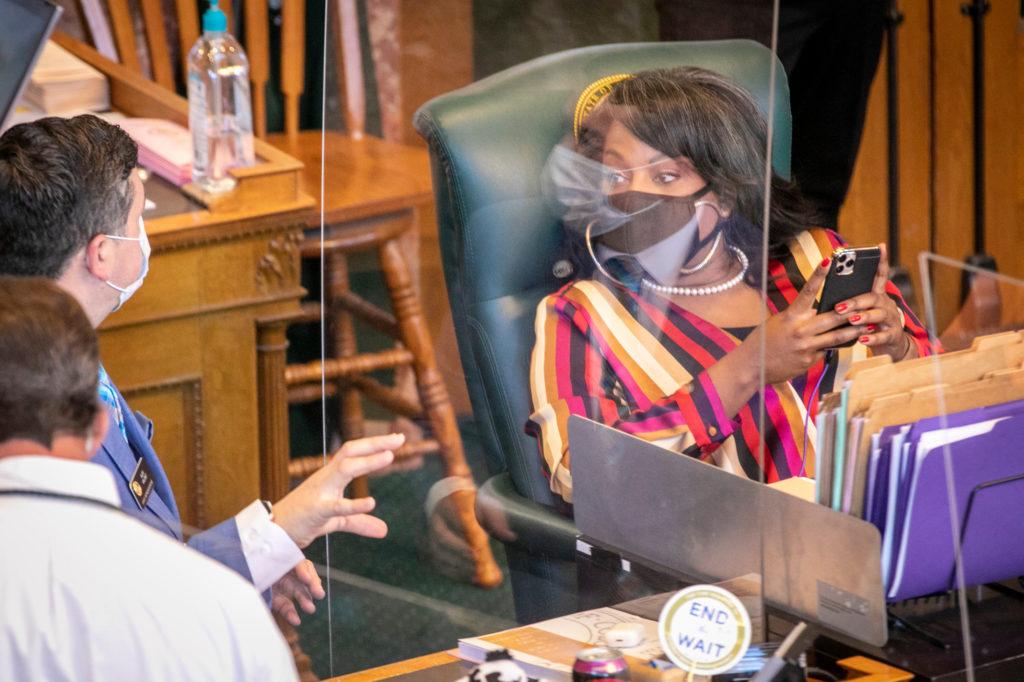
Even with the Capitol open, it’s likely many people will be hesitant to attend in person. The building was relatively quiet on the first day back, with very few lobbyists or members of the public in attendance. People who can’t, or don’t want, to testify in person can submit written comments.
However, the technology the legislature is relying on isn’t foolproof. Shortly after Lee made his point about large gatherings, the committee learned that its meeting wasn’t streaming and had to briefly pause its work. While the hearing was recorded and will be posted later, people watching online were unable to follow it live.
“This is the only way that the people of Colorado have to participate … We can’t be operating in secret,” Republican state Sen. Bob Gardner said.
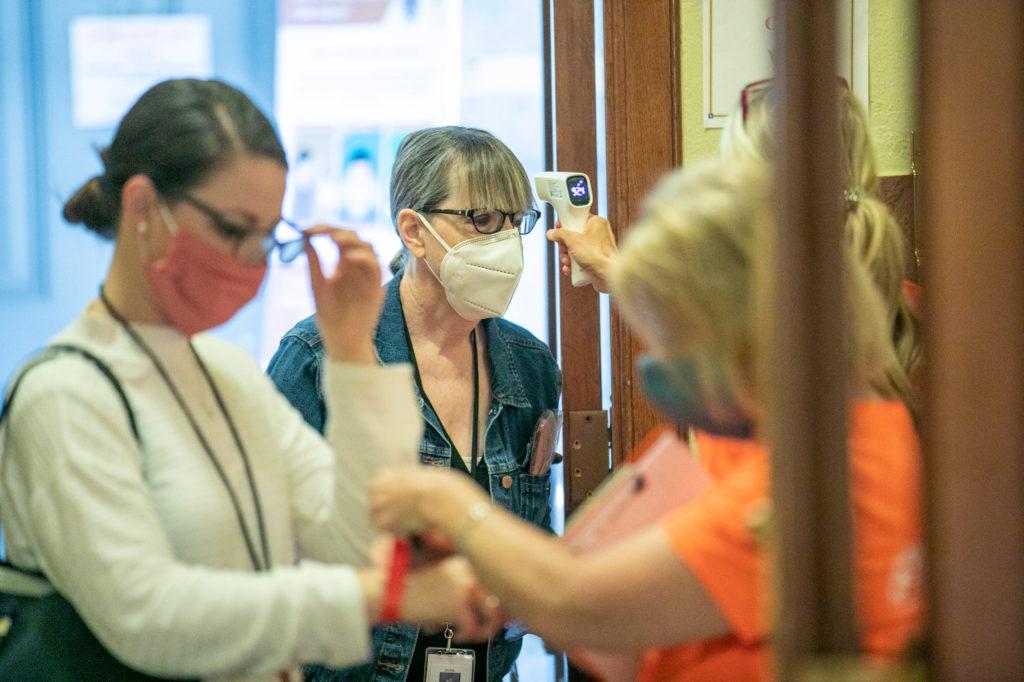
Reshuffling priorities for the rest of the session
Because lawmakers only paused the session in March, all of the legislation that was in progress at that point is still on the calendar. Legislative leaders say some of those bills will still make it through the process, but many won’t.
“There's not time to work on it and there's not a budget to do it," Becker said of many proposals.
However, the House opened its unusual session with discussion of some already-introduced measures that come with a relatively low cost to the state budget, including one that would eliminate the statute of limitations for civil lawsuits over future cases of sexual assault.
“Members, this is actually a very historic moment. This is a landmark bill you’re about to vote on,” Republican state Rep. Matt Soper told the House before his measure won unanimous support in a preliminary vote.
In the Senate, the Judiciary Committee saw one of the first public debates about legislative priorities as it sliced through a list of 18 bills in just an hour.
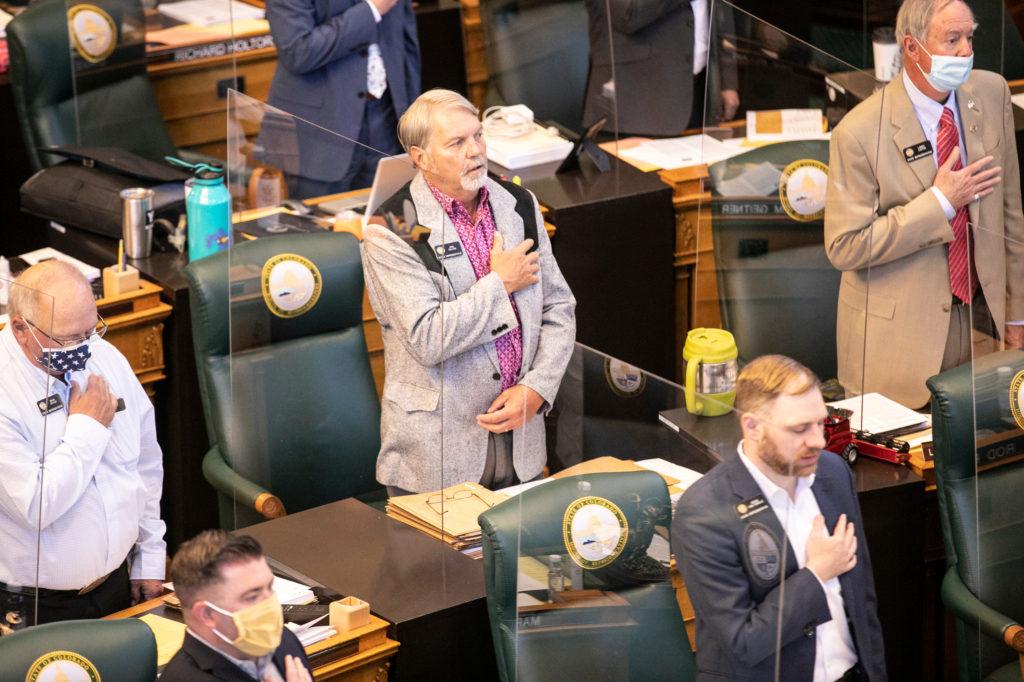
Fenberg went to bat for an update to the Mobile Home Park Act. The committee approved the bill with two letters of support and no public speakers.
But the committee spent much of the rest of its meeting killing bills. It took unanimous votes to lay aside everything from a therapy program for incarcerated youth to a requirement that district attorneys publish demographic data about defendants and the creation of dyslexia screening and education programs for incarcerated people.
However, Republicans and Democrats parted ways on the fate of a bill for more severe sentencing in cases of sexual exploitation of a child.
“This is fast and friendly and it’s of limited financial impact,” Gardner said. “This is about the safety of our children.”
He was overruled by Democrats on the committee who voted down the measure.
Lawmakers from the two parties clashed again on a bill to ban the “gay panic” courtroom defense. Defendants have used the legal strategy as recently as last year to try to excuse attacks on gay and transgender people, according to Republican sponsor state Sen. Jack Tate.
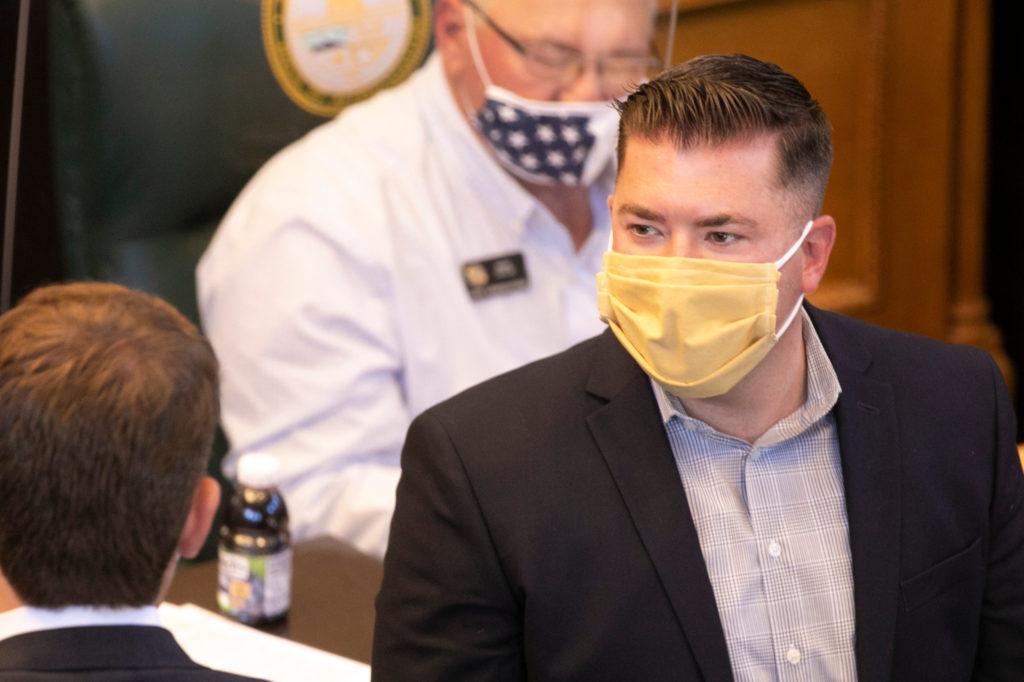
Lee moved to scuttle the bill, saying that the legislature had only limited time and that use of the defense was rare. Gardner seemed exasperated, asking why other bills could move forward.
“If a bill involves mobile homes and has the right sponsors, it can pass out today,” he said sarcastically, to no avail.
Democrats on the committee rejected the measure 3-2.
“I just killed multiple bills that I’ve been working on for months, and it is incredibly difficult — these are incredibly difficult decisions for us to have to make,” Democratic state Sen. Julie Gonzales said.
The failed bills could return next year, she said.
The same types of debates played out in the House Education Committee, where several lawmakers moved to kill their own proposals. These discussions will continue to playout for the rest of the week — and they’ll only get more intense as lawmakers move from a pre-pandemic legislature to negotiating unprecedented cuts to state funding.









